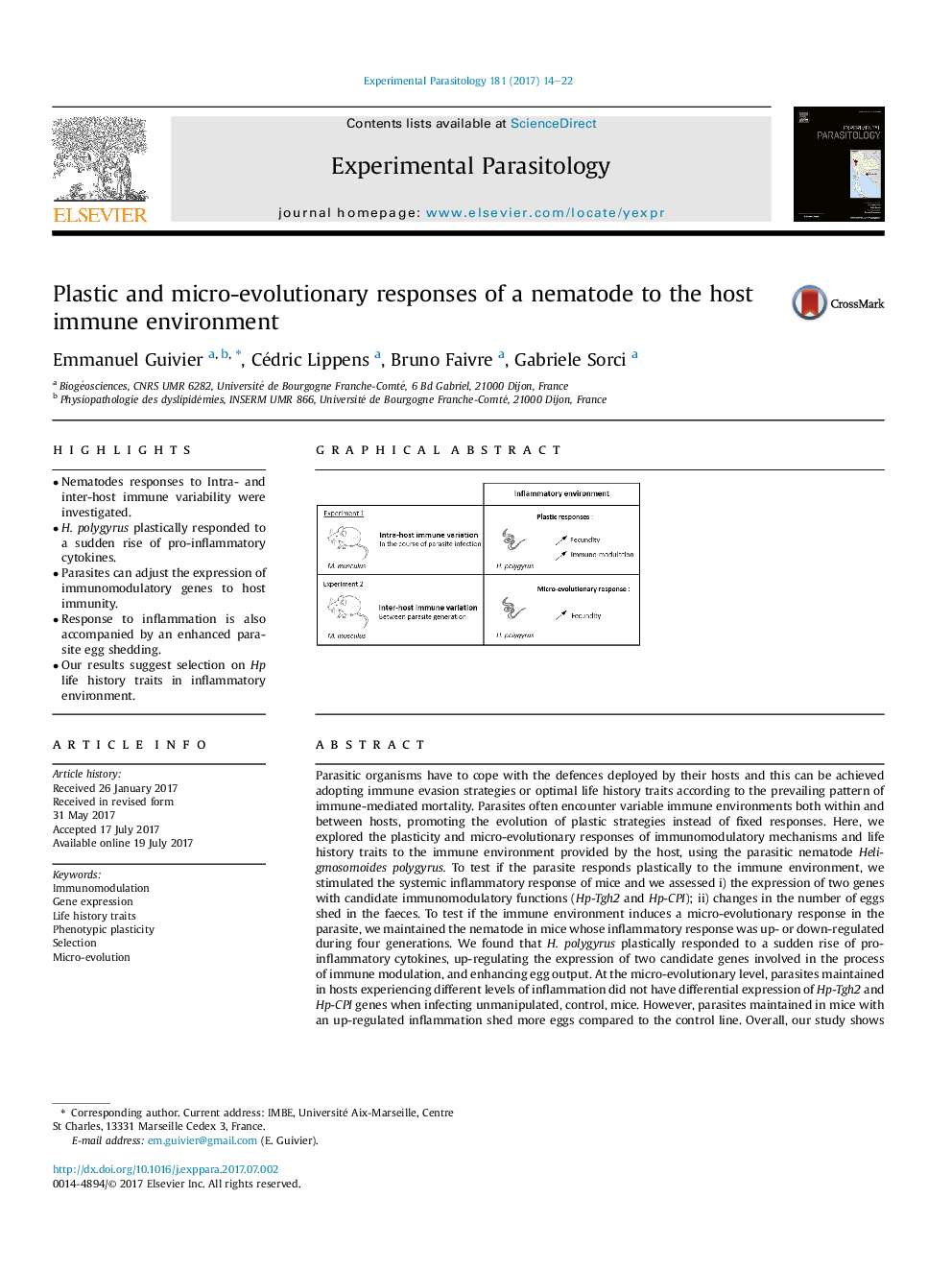| کد مقاله | کد نشریه | سال انتشار | مقاله انگلیسی | نسخه تمام متن |
|---|---|---|---|---|
| 5741023 | 1616984 | 2017 | 9 صفحه PDF | دانلود رایگان |
- Nematodes responses to Intra- and inter-host immune variability were investigated.
- H. polygyrus plastically responded to a sudden rise of pro-inflammatory cytokines.
- Parasites can adjust the expression of immunomodulatory genes to host immunity.
- Response to inflammation is also accompanied by an enhanced parasite egg shedding.
- Our results suggest selection on Hp life history traits in inflammatory environment.
Parasitic organisms have to cope with the defences deployed by their hosts and this can be achieved adopting immune evasion strategies or optimal life history traits according to the prevailing pattern of immune-mediated mortality. Parasites often encounter variable immune environments both within and between hosts, promoting the evolution of plastic strategies instead of fixed responses. Here, we explored the plasticity and micro-evolutionary responses of immunomodulatory mechanisms and life history traits to the immune environment provided by the host, using the parasitic nematode Heligmosomoides polygyrus. To test if the parasite responds plastically to the immune environment, we stimulated the systemic inflammatory response of mice and we assessed i) the expression of two genes with candidate immunomodulatory functions (Hp-Tgh2 and Hp-CPI); ii) changes in the number of eggs shed in the faeces. To test if the immune environment induces a micro-evolutionary response in the parasite, we maintained the nematode in mice whose inflammatory response was up- or down-regulated during four generations. We found that H. polygyrus plastically responded to a sudden rise of pro-inflammatory cytokines, up-regulating the expression of two candidate genes involved in the process of immune modulation, and enhancing egg output. At the micro-evolutionary level, parasites maintained in hosts experiencing different levels of inflammation did not have differential expression of Hp-Tgh2 and Hp-CPI genes when infecting unmanipulated, control, mice. However, parasites maintained in mice with an up-regulated inflammation shed more eggs compared to the control line. Overall, our study shows that H. polygyrus can plastically adjust the expression of immunomodulatory genes and life history traits, and responds to selection exerted by the host immune system.
150
Journal: Experimental Parasitology - Volume 181, October 2017, Pages 14-22
